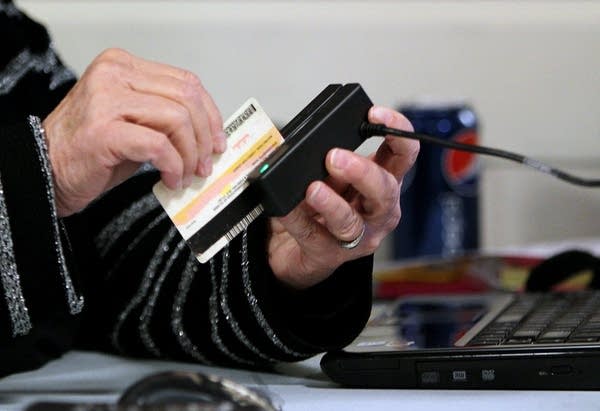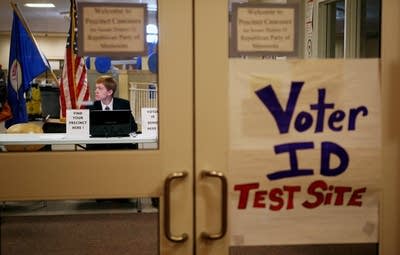Lawsuits likely before and after Voter ID balloting
Go Deeper.
Create an account or log in to save stories.
Like this?
Thanks for liking this story! We have added it to a list of your favorite stories.

Only days after the Legislature approved a proposed constitutional amendment that will ask voters this November to require that Minnesotans show photo identification at the polls, groups that oppose the measure vowed to fight it in court.
"This question is deceptive and misleading to voters and the court should strike it down and reject it," Mike Dean, executive director of Minnesota Common Cause, said Monday.
Dean said his group and the Minnesota chapter of the America Civil Liberties Union are preparing a lawsuit to stop the amendment from getting on the ballot.
His remarks came on the same day that Gov. Mark Dayton issued a symbolic veto of the amendment. The governor argued that thousands of Minnesotans, including the elderly and military members stationed overseas, could be disenfranchised if the amendment passes in November.
Turn Up Your Support
MPR News helps you turn down the noise and build shared understanding. Turn up your support for this public resource and keep trusted journalism accessible to all.
"This amendment is a proverbial wolf in sheep's clothing," Dayton said. "It goes far beyond its purported intention to require photo identification. Instead it dismantled Minnesota's best in the nation election system."
Dayton said he would work to defeat the amendment at the polls.
But Dean and others are working towards keeping it from going to a vote. He said one of his biggest concerns is that the question voters would encounter in November is more general than how the amendment would be worded if it passed.

For example, Dean said voters who don't have a photo ID would no longer be able to register on Election Day. Instead, those voters would cast a provisional ballot that would be counted only after a voter shows the appropriate identification to elections officials.
"They're making it seem that this is just about photo ID when, in fact, the changes are going to happen to the constitution are much broader than that," Dean said. "This is a fundamental change to Minnesota's election system."
Dean said the courts could either reject the amendment completely -- as a Missouri court did with that state's voter ID initiative — or change the wording of the question on the ballot.
Republican supporters of the amendment, however, say they're confident the measure will meet constitutional muster. State Rep. Mary Kiffmeyer, R-Big, Lake defended both the question to voters and the supporting language.

"The core part of this constitutional amendment change is about the Photo ID and all of the other things that are related to the requirement of photo ID to those who come and vote in person," Kiffmeyer said. "The key concept and the core of that is the photo ID so I'm confident that our ballot question does the job."
Kiffmeyer and other supporters say they've shaped their amendment with a 2008 U.S. Supreme Court ruling in mind. That decision upheld an Indiana law that requires people to present a photo ID to vote.
But even if the initiative makes it to the ballot and is approved by voters, the legal wrangling could continue, said state Rep. Ryan Winkler, DFL-Golden Valley.
"That's where most of the court time is going to be spent," Winkler said. "We can't go back and fix this by passing a law. We have to amend the constitution to change it and the final word on the constitutional language is in a court. There will be non-stop litigation by both sides on this issue."
If the amendment becomes law, Winkler said, legal challenges could involve the type of ID and other details that have been left up to the Legislature.
Dan McGrath, executive director of the conservative group Minnesota Majority, said he expects the Legislature and the courts to move quickly if the amendment is passed.
"With the constitutional amendment in place, and the directive from the voters, they'll be able to work it out, " said McGrath, who supports voter ID. "The amendment is very clear about what has to be in the legislation."
The amendment would take affect in 2013 if it's passed by the voters and is not blocked by the courts.
Dear reader,
Political debates with family or friends can get heated. But what if there was a way to handle them better?
You can learn how to have civil political conversations with our new e-book!
Download our free e-book, Talking Sense: Have Hard Political Conversations, Better, and learn how to talk without the tension.






